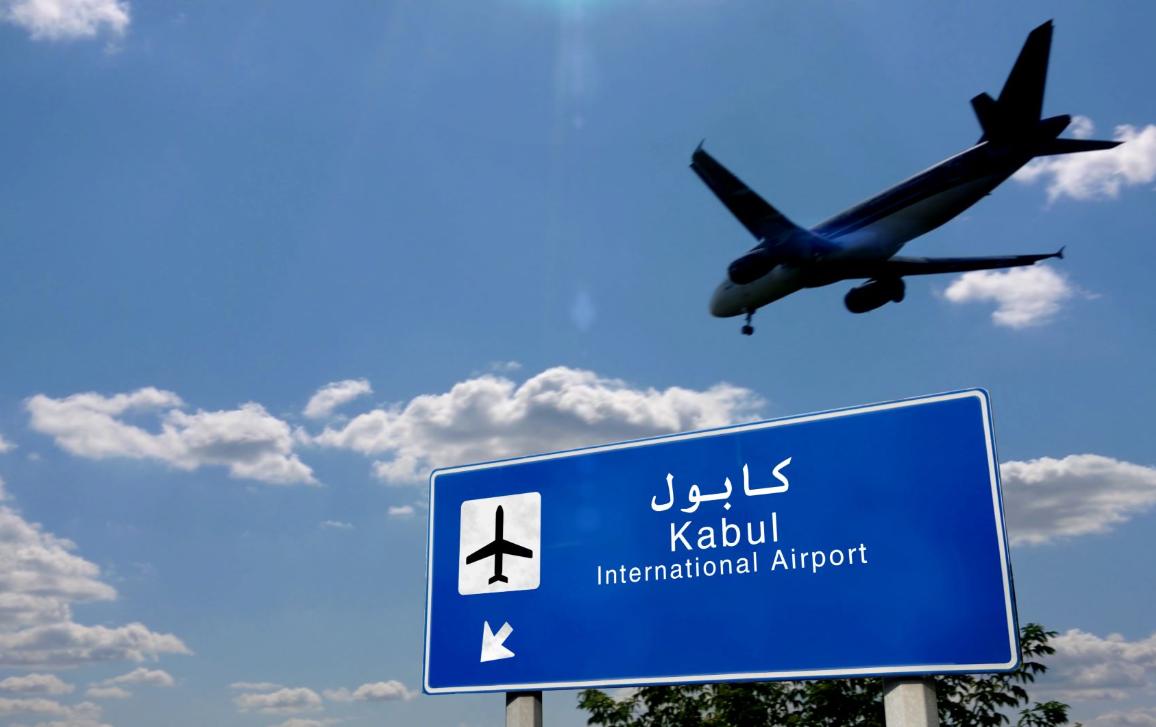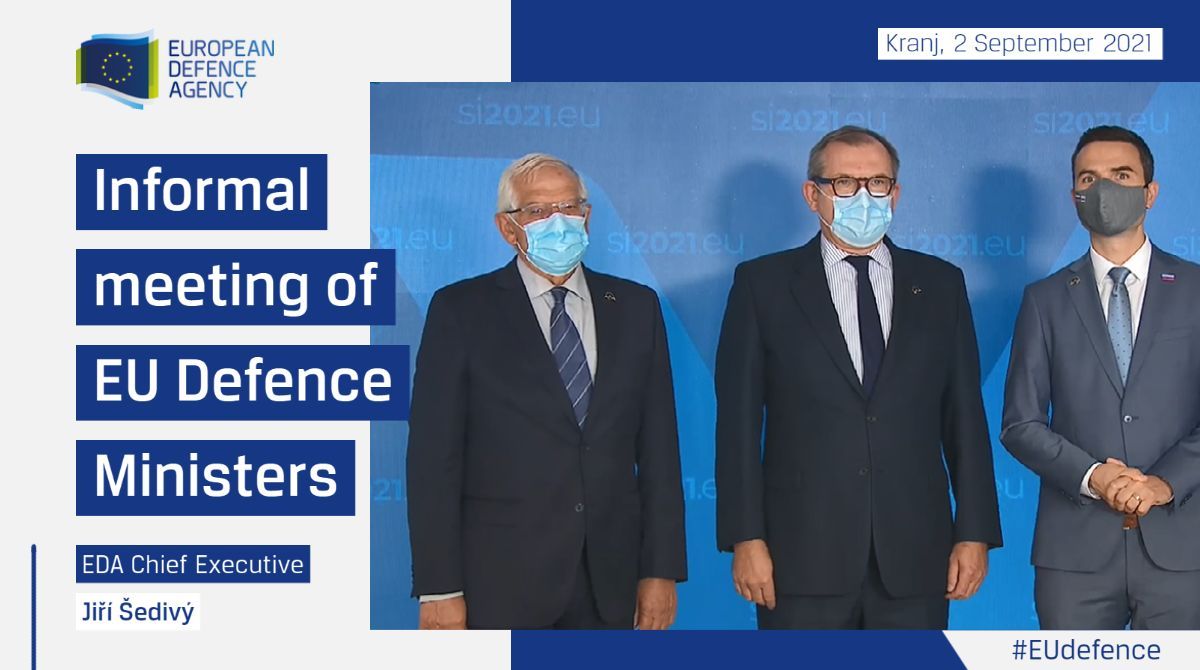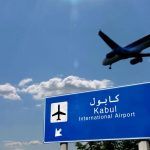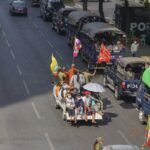Situation in Afghanistan
Following the Taliban takeover on 15 August, a new reality exists in Afghanistan, a reality that affects the EU, affects the region, international stability and has a direct impact on European security. The future of Afghanistan remains a key issue for the EU. The EU remains firmly committed to supporting the Afghan people.
Within the EU and together with European partners, the work will also focus on, among other issues, the management of population flows from Afghanistan; the prevention of the spread of terrorism; the fight against organised crime, including drug trafficking and human trafficking.
Ministers have met to discuss the potential implications of the situation in Afghanistan in the areas of international protection, migration and security.
They were expected to cover the EU’s coordination with international partners to ensure that humanitarian aid reaches vulnerable populations, as well as support to neighbouring countries hosting large numbers of migrants and refugees. They were also expected to discuss possible joint actions to prevent uncontrolled large-scale illegal migratory movements.
17th August 2021: Informal video conference of foreign affairs ministers
European Union ministers of foreign affairs gathered for an extraordinary meeting to consider the latest developments in Afghanistan. They stressed the need to ensure the safe evacuation of EU citizens and local staff. Ministers called for the protection of all human life and for the immediate restoration of security and civil order with respect for fundamental rights.
|
“Right now, our immediate priority is to ensure safety and security of all European Union’s national and our local Afghan staff and their families. The safe and orderly departure of foreign nationals and Afghans who wish to leave the country must be facilitated.” Josep Borrell, European Union’s High Representative for Foreign Affairs and Security Policy |
Ministers also stressed that cooperation with any future Afghan government will be conditioned on a peaceful and inclusive settlement and respect for the fundamental rights of all Afghans, including women, youth and persons belonging to minorities, as well as respect for Afghanistan’s international obligations, commitment to the fight against corruption and preventing the use of Afghanistan’s territory by terrorist organisations.
A broader discussion among foreign ministers on relations with Afghanistan remains to be held on the occasion of the informal foreign ministers’ meeting (Gymnich) on 2 and 3 September..
24th August: G7 leaders informal meetingt by video conference
G7 leaders met by video conference to discuss the ongoing crisis in Afghanistan and coordinate international action. On the topic of humanitarian aid and migration, in his remarks following the meeting, President Michel gave assurances that the EU would do its part to support the safety and proper living conditions of Afghans who flee their country, and that the EU would work with the countries in the region to address the different needs. He also stressed the importance of preventing the creation of a new market for smugglers and human traffickers, underlining the EU’s determination to keep the migratory flows under control and its borders protected.
A broader discussion among foreign affairs ministers about relations with Afghanistan is arranged to take place during the informal meeting of foreign affairs ministers (Gymnich) on 2-3 September.
31st August 2021 : Justice and Home Affairs Council
Home affairs ministers met to discuss developments in Afghanistan, more specifically in relation to potential implications in the areas of international protection, migration and security. The Council adopted and agreed a statement on the situation in Afghanistan.
| “We have shown unity and agreed a joint statement on the EU’s common response to the situation in Afghanistan. The EU remains committed to support vulnerable Afghans, and in particular women and children, both in Afghanistan and in the region. At the same time, we are determined to prevent smugglers and human traffickers from exploiting this dire situation by coordinating our response to any illegal migration movements and protecting the EU external borders.” Aleš Hojs, Minister of the Interior of Slovenia |
In the statement ministers highlighted that the evacuation of EU citizens and, to the extent possible, Afghan nationals who have cooperated with the EU and its member states and their families, has been conducted as a matter of priority and will be continued.
As an immediate priority, the EU will continue to coordinate with international partners, in particular the UN and its agencies, on the stabilization of the region and to ensure that humanitarian aid reaches the vulnerable populations. The EU will also engage and strengthen its support to third countries, in particular the neighbouring and transit ones, hosting large numbers of migrants and refugees.
The EU will also cooperate with those countries to prevent illegal migration from the region. The EU and its member states also stand determined to act jointly to prevent the recurrence of uncontrolled large-scale illegal migration movements faced in the past, by preparing a coordinated and orderly response. With the support of Frontex, they remain determined to effectively protect the EU external borders and prevent unauthorized entries, as well as assist the most affected member states.
1st September 2021 : “Europe, Afghanistan Is Your Wake-Up Call”
Over the past weeks, The European Union’s high representative for foreign affairs and security policy, and vice president of the European Commission Josep Borrell has focused his activities on Afghanistan . After the Informal meetings of Defence and Foreign Ministers (2-3 September 2021), HR/VP has dedicated a new blog post to the Afghanistan crisis: https://europa.eu/!BbyBnk
The Taliban’s takeover in Afghanistan is, first and foremost, a tragedy for Afghans. The world’s attention is rightly focused on trying to help those desperately trying to flee the country and worrying about those left behind, notably women and girls.
But it is also a severe blow to the West. Europe and the United States were united as never before in Afghanistan: It was the first time that NATO’s Article 5, committing all members to defend one another, was invoked. And for many years, Europeans provided a strong military commitment and an important economic aid program, amounting to a total of 17.2 billion euros, or $20.3 billion.
But in the end, the timing and nature of the withdrawal were set in Washington. We Europeans found ourselves — not only for the evacuations out of the Kabul airport but also more broadly — depending on American decisions.
That should serve as a wake-up call for anyone who cares about the Atlantic alliance. The United States understandably does not want to do everything alone. To become a more capable ally, Europe must invest more in its security capabilities and develop the ability to think and act in strategic terms. The events in Afghanistan have been harrowing. But they should lead us to deepen, not divide, the alliance with America. And to strengthen our cooperation, Europe must step up.
To do so, we first need to have a shared sense of the threats we face and how best to address them — a common strategic culture. In that vein, the European Union is working on a European Strategic Compass, a document that will precisely define our ambitions for security and defense for the next five to 10 years.
Member states are fully involved in this exercise. Some, for example, have suggested the creation of a European “initial entry force,” consisting of about 5,000 troops, that could undertake rapid and robust action. Helping to secure an airport in challenging circumstances, as in Kabul, could be the type of operation we aim for in the future. By embracing the spirit and potential of collaboration, we hope the document — to be issued in spring 2022 — will serve as a guide to our collective future.
It’s an uncertain future, full of threats in different domains, including cyberspace, the sea and outer space. That’s why it’s vital that Europeans, whether in NATO, the United Nations or the E.U., work together more on defense. Alongside increasing pivotal military capabilities — airlift and refueling, command and control, strategic reconnaissance and space-based assets — we need forces that are more capable, more deployable and more interoperable. Efforts to achieve just that, in the form of several initiatives, are already underway.
But we must go further and faster. The European Defence Fund, established to boost the bloc’s defense capabilities, will receive close to 8 billion euros, or $9.4 billion, over the next six years. That should be used to significantly support collaborative research and the development of much-needed defense technologies.
A more strategically autonomous and militarily capable E.U. would be better able to address the challenges to come in Europe’s neighborhood and beyond. It would also, I am convinced, be a boon for the United States and in the interest of the Atlantic alliance. After all, any partnership needs capable allies and political trust.
The task could not be more urgent. The Taliban’s return to power brings with it the risk of renewed terrorist attacks, a growth in drug trafficking and a large amount of irregular migration. We must be resolute in combating these threats, as well as in responding to a changed regional landscape. China, Russia and Iran will have greater sway in the region, while Pakistan, India, Turkey and Gulf monarchies will all reposition themselves. We cannot let them be the only interlocutors with Afghanistan after the Western withdrawal. Europe, along with the United States, has to reframe its engagement.
Not least with the Taliban themselves. After failing to prevent their capture of the country, we will now have to deal with them, carefully weighing our options and working for a coordinated international approach. That must be subject, of course, to clear conditions on their behavior, notably respect for human rights.
What’s more, we must continue supporting the Afghan people, especially minorities and women and girls. To this end, the European Commission has already decided to quadruple its humanitarian aid this year to 200 million euros, or $236 million, while suspending development aid. And though it will be a challenge, we will have to find ways to get humanitarian aid in and delivered — and safe passage out for those who feel under imminent threat.
The events in Afghanistan are not an invitation to withdraw from further international challenges. On the contrary, they should embolden Europe to deepen its alliances and strengthen its commitment — and ability — to defend its interests.
Some events catalyze history: The Afghanistan debacle is one of them. We Europeans must learn its lessons.
2nd September 2021 : Informal meeting of Defence Ministers
They focused on our missions, on the deployment of our missions in the world and, although in Afghanistan the European Union today does not have a mission – we had one four or five years ago and we cancelled it – all Member States have been engaged on Afghanistan in the last two weeks. So, Afghanistan was the backdrop of our discussion. It was obvious and necessary.
The Ministers recognised the good cooperation that the European Union and the Member States demonstrated during the evacuations.
Together, Member States evacuated 17,500 persons, including 520 European Union staff and their relatives – that were transported to the hub in Madrid and, from there, redistributed to the Member States that provided visas to them. This was done in a matter of few days, without previous notice and under difficult circumstances.
Everybody insisted on the need to draw lessons and understand why our efforts to build a modern state in Afghanistan have not led to a sustainable result. And, at the same time, that this is not the moment for disengagement, just the contrary. We have to increase our engagement in order to continue supporting Afghan people and, especially, the ones who were willing to leave and were unable to do so. Link to the video: https://audiovisual.ec.europa.eu/en/video/I-209997
2nd September 2021: Statement by Council President Charles Michel
The chaotic withdrawal in Afghanistan forces us to accelerate honest thinking about European defence
the President offers his reflection on the lessons to be drawn from the current crisis in Afghanistan and the challenges it poses to EU security and defence. He stresses the need for the EU to reinforce its strategic autonomy and ability to act, protecting its own interests. “The situation in Afghanistan brings us to conduct our analyses and make our choices in accordance with our geostrategic views and interests. This Afghan crisis imposes on us a full-scale exercise in strategic autonomy”,President Charles Michel.
The fall of Afghanistan to the Taliban gives rise to tragic situations, and also produces unbearable images, culminating in last week’s attack that caused the death of at least 170 people.
Many people are wondering what the 20-year international presence was all for, and are questioning the discrepancy between Europe’s involvement in the international effort in Afghanistan and its limited influence over the strategic choices and the course of events leading up to the past few days. As a global economic and democratic power, can Europe be content with a situation where it is unable to ensure unassisted the safety and evacuation of its diplomats, its citizens and those who have helped them and are therefore under threat? And here I pay tribute to the local and EU staff who worked tirelessly up until the very last minute in Afghanistan, and to all our diplomats around the world.
What other major geopolitical event do we need to lead Europe to aim for more decision-making autonomy and capacity for action? The situation in Afghanistan brings us to conduct our analyses and make our choices in accordance with our geostrategic views and interests. How did we get here?
2nd– 3rd September 2021 : Informal meeting EU Foreign Ministers at Brdo focused on the Union’s efforts in Afghanistan
The two-day event hosted by Slovenian Foreign Ministers Dr Anže Logar and chaired by High Representative of the European Union for Foreign Affairs and Security Policy Josep Borrell provided a platform for an open debate on the Union’s future efforts in Afghanistan and the EU-China relationship.
“In the discussion on Afganistan, the convergence of views has brought about a broad consensus based on the decisions previously reached at the extraordinary sessions of foreign ministers and ministers of the interior. There can be no doubt that member states wish to speak with one voice. The unanimous message is clear: the events we witnessed in 2015 and 2016 must not be repeated.” Dr Anže Logar Slovenian Foreign Ministers
“The future of Afghanistan remains a key issue for the EU. The EU remains committed to supporting the Afghan population.”Josep Borrell Fontelles High Representative of the European Union for Foreign Affairs and Security Policy
The ministerial meeting focused on a discussion about Afghanistan. The assembled ministers were first addressed by United Nations High Commissioner for Refugees Filippo Grandi and went on to deliberate on the continued evacuation from Afghanistan of the remaining EU citizens and local Afghan staff who provided support to enable the implementation of European programmes in the country. They stressed that to prevent a humanitarian catastrophe and a possible migration wave towards Europe the European Union must cooperate with Afghanistan’s neighbouring countries and other key international players. The ministers were unanimous on the urgent need for an agreement on the EU’s comprehensive strategy towards Afghanistan, which will include all the security considerations from migration to the danger of terrorist attacks and the illicit drugs trade.
Situation of women in Afghanistan
1st September 2021: MEPs to discuss women’s rights in the country
“The future is dark, really very dark. Taliban means for women and for girls to be completely pushed away from the public: from schools, from universities, from the official governments, it means false marriages, it means violence. To be a women, to be a girl in Afghanistan means that it is really dangerous and that your life is in danger”, Evelyn REGNER (S&D,AT), Chair of the Committee on Women’s Rights and Gender Equality (FEMM), makes a statement on the situation of women in Afghanistan, during a meeting of the FEMM committee in the European Parliament in Brussels.
Watch the whole speech in the following video https://multimedia.europarl.europa.eu/en/situation-of-women-in-afghanistan-statement-regner-femm-chair_I210023-V_v
6th of September: MEPs to discussed women’s rights in the country
MEPs dealing with human rights and women’s rights debated the treatment of women and girls in Afghanistan following the Taliban’s takeover.
Members of the subcommittee on human rights and the committee on women’s rights and gender equality, in association with the Parliament’s delegation for relations with Afghanistan, discussed the worrying situation facing women and girls in the country under the Taliban.
This exchange of views was opened with a statement by Andreas von Brandt, Head of the EU Delegation to Afghanistan. MEPs then discussed with Shaharzad Akbar, Chair of the Afghan Independent Human Rights Commission (AIHRC), Guissou Jahangiri, Vice President of the International Federation for Human Rights (FIDH), Sahraa Karimi, Afghan film director and President of the Afghan Film Organisation, as well as the Commission.
During the debate, MEPs were called on all EU member states to work together to ensure safe passage for anyone in danger and support the safety and well-being of women and girls from Afghanistan.








Leave a Reply